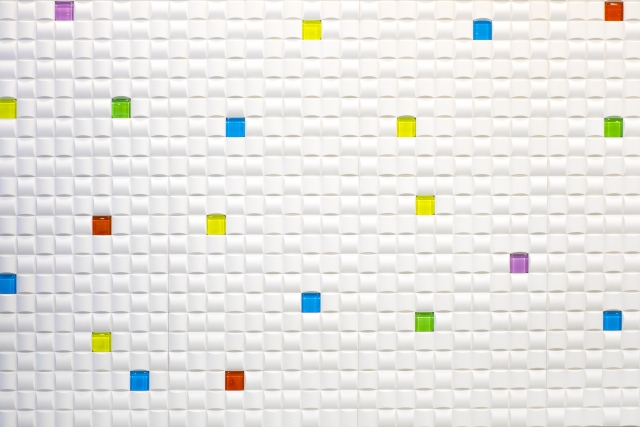For People Who Will Enter Japan or Go Abroad: About Quarantine
For People Who Will Enter Japan or Go Abroad: About Quarantine
In order to prevent COVID-19 from entering Japan via foreign aircrafts and ships, Japanese government is taking border control measures for arriving flights and ships from all other countries, such as inquiry and medical consultation, isolation and detention of patients, disinfection for aircrafts, etc.
Detailed measures change frequently depending on the worldwide and domestic coronavirus disease situation. For example people who have visited Hubei province of China were able to enter Japan by filling in a questionnaire in February prior pandemic, while they were refused to enter Japan unless exceptional circumstances in March, while the latest policy is that they can enter Japan after receiving PCR test.
Always catching the latest quarantine information is critical for people who will enter Japan from overseas or go abroad considering you may come back, for both a business or private trip. We are going to talk about Japan's latest quarantine measures, which influence not only your trip schedule, but also whether you can enter Japan.
Quarantine measures
People boarding Japan from all other countries and areas are expected to follow instructions below:
Before entering Japan
Be sure to arrange an accommodation and means of private transportation from the airport to the accommodation in Japan. Public transportation should not be used, including trains, buses, taxis, domestic flights, and passenger ships.
After entering Japan
Be sure to stay at a place designated by the Chief of the Quarantine Station, such as your home or accommodation, for 14 days counting from the day after arrival no matter symptoms of illness occur or not. Don't use public transportation for any purpose, including transport from airports, etc. during the 14 days.
Upon entry, register the address of the above place for 14-days staying and means of private transportation to a quarantine officer at the quarantine station.
Moreover, some countries and areas are designated as strengthened quarantine under the Immigration Control Act, including China, Korea, Singapore, the Schengen countries, Israel, United States of America, etc. The latest list of countries and areas can be found on the website of the Ministry of Health, Labor and Welfare. All people who have visited any of the above countries and areas are subjected to PCR test upon entry and periodic health check by Public Health Centers after entering Japan.
Currently the PCR test may take about 1~2 days, during when you are required to stay at a designated place such as your home, or spaces at the airport or accommodations designated by the quarantine officer. It should be noted that you will not be permitted to go to accommodations arranged by yourself before knowing the PCR test result.
If the PCR test result is positive, you will be moved to a hospital or designated hotel in the case of no or slight symptoms. Even with a negative result you still need to follow the above instructions: stay at home for 14 days and don't use public transportation.
Applicable person for above quarantine measures
The above quarantine measures apply to people of all nationalities even Japanese nationals, for all entry purposes. Staff of airlines or shipping companies are also subject to those measures, except for those who are engaged in loading and unloading tasks only, and did not enter strengthened quarantine countries or areas.
The place to stay for 14 days
A place of residence in Japan such as your home is expected for staying for 14 days counting from the day after arrival. Foreign nationals who have no place of residence in Japan, the accommodation that are arranged prior to departure, such as a hotel or a Japanese-style inn is expected.
If you have no place of residence in Japan and failed to arrange accommodation prior to departure, you will have to find accommodation at the airport. Wherever you stay, any cost for accommodation should be paid by your expense.
The means of transportation
Both staying at your home or accommodation for the 14 days, public transportations should not be used for heading, such as trains, buses, taxis, domestic flights, and passenger ships, as you may spread the virus to a cluster of unknown people if you have been infected. Instead, a private transportation, for example a car or a rental car should be arranged by yourself, your family or your company.
If you failed to arrange a private transportation upon entry to Japan, you will have to stay or find accommodation at the airport until a private transportation get arranged. As visitors from strengthened quarantine countries and areas may also need to wait for PCR test result at the airport if they have no place of residence in Japan, you are highly recommended to arrange transportation priorly to avoid congestion.
Life during the 14 days
The 14 days are set to confirm whether you are a coronavirus infected person as there are cases that no symptoms will occur even infected. So basically you are expected to behave as you are already infected during the 14 days, including not going out and not contacting with others as much as possible. Wash hands often, sleep and eat well, and if any symptoms like fever, cough occurs, call the public health center for consultation as guided on the health card transferred upon the quarantine.
If staying at a hotel, you should avoid contacting with staff. Many hotels provide special accommodation for visitors after quarantine that food will be delivered to the door and room cleaning will be done by customers themselves.
If you stay at home with family members, make sure you stay at a separate room and avoid sharing things with other family members. Family members should wash hands often and shared things are recommended to be disinfected often such as door handles, knobs, etc. If you stay home alone, you are highly recommended to buy necessities like food products online to avoid going out. In the case that you have to go out for hospital, etc, wear face masks and avoid public transportations.




